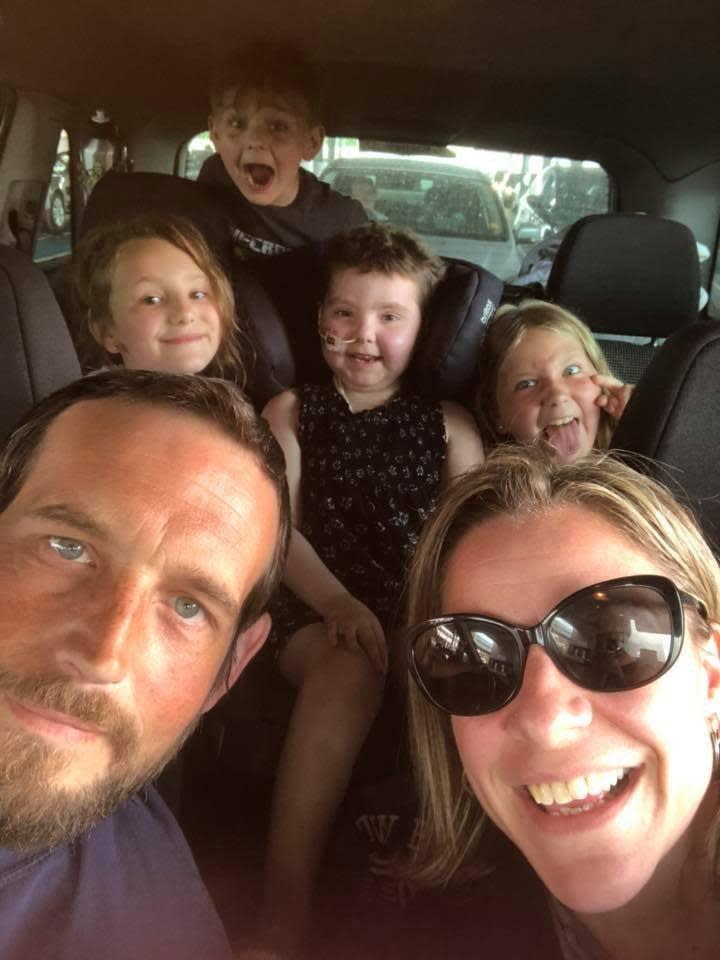Family plea to NHS for £4,000-a-month leukaemia drug to save daughter

A girl who has a rare form of leukaemia is seeking NHS funding for potentially life-saving drugs.
Ebonie-Rose Musselwhite, seven, desperately needs medication costing up to £4,000 a month. Her parents Christine Jenkins and Ben Musselwhite, of Crawley, West Sussex, fear NHS England will not pay for the drug and are trying to raise the cash themselves.
If Ebonie-Rose receives the medicine, they believe she could remain in remission for the rest of her life. A doctor at the Royal Marsden Hospital in Sutton, where she has been treated, submitted a request to NHS England two months ago for her to be given dasatinib, also known as Sprycel, as an exception.
Her parents will today enrol her in an unrelated clinical trial at Great Ormond Street Hospital that will seek to “supercharge” her white blood cells to fight the disease.

Ebonie-Rose was diagnosed with Philadelphia chromosome-positive acute lymphoblastic leukaemia (ALL), aged four. ALL is the most common form of childhood leukaemia. Dasatinib is approved for NHS use on adults with a different form of Philadelphia chromosome-positive leukaemia.
Earlier this month its manufacturers Bristol-Myers Squibb gained European Commission approval for it to be used in children with that different form of leukaemia. It is a tyrosine kinase inhibitor, a class of drug that stops cancer cells growing and dividing.
Ms Jenkins said she was aware, via Facebook patient forums, that dasatinib had been successfully given to children in the US with Ebonie-Rose’s form of leukaemia. The disease causes white blood cells to become cancerous.
Ms Jenkins said: “We have been waiting for six to seven weeks to hear from the NHS on whether they will fund the dasatinib, but we’re 98 per cent certain that we won’t get it because very little funding in the UK is earmarked for child cancer. It’s obviously very expensive and Ebonie will have to take it for a minimum of one year, and more likely up to 10 years.
“Time really is of the essence. It’s crazy that we have to wait so long to hear from the NHS.”
Since being diagnosed in February 2016, Ebonie-Rose has undergone a year’s chemotherapy , losing her hair three times. A bone marrow transplant earlier this year, using cells from her brother Ronnie, four, failed due to the strength of the cancer. Ebonie-Rose, who also has two sisters, Ayla, 11, and Willow, eight, is currently at home. She is receiving the drug imatinib that is normally given prior to dasatinib. It has been of varying success.
“She has been very brave through all of this,” said Ms Jenkins. “It is heartbreaking knowing there is treatment out there that can help her and that it’s only available to her if we have enough money. We are all too aware that this is not a cure and will be a matter of controlled remission, knowing that at any time the disease could come back. I want to start [dasatinib] as soon as possible. We don’t have time to wait.”
The drug-maker said: “While Bristol-Myers Squibb continues to investigate the effectiveness of dasatinib in this rare type of childhood cancer there is not yet any clear evidence about the benefit or risk of using it for children.” A spokesman for NHS England said: “If a treatment is not routinely provided by the NHS, a patient’s clinician can submit an individual funding request.”
www.justgiving.com/crowdfunding/ebonie-rosem

 Yahoo News
Yahoo News 
